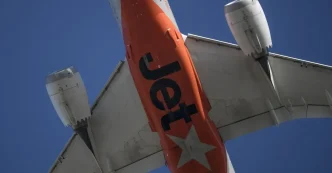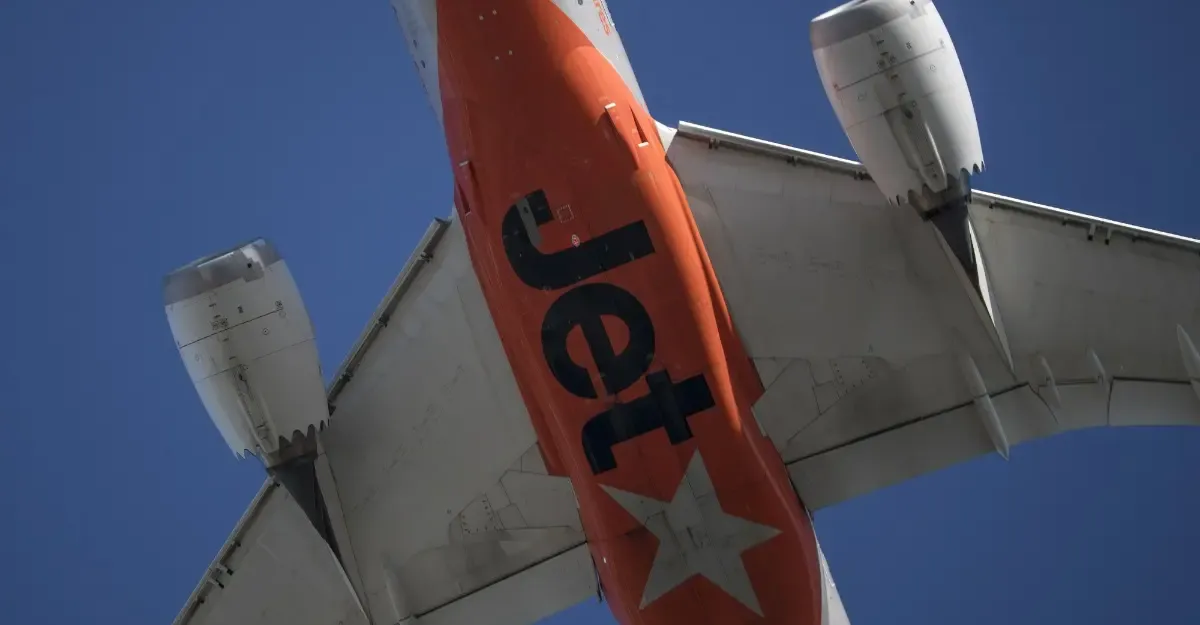In a blow to Singapore’s aviation sector, Jetstar Asia, the low-cost carrier that has operated out of the city-state for over two decades, announced its closure on June 11, 2025. The airline, which took its maiden flight in December 2004, will cease operations on July 31, leaving more than 500 local employees, including pilots and cabin crew, without jobs. As the final flights approach, stories of personal loss and resilience are emerging from the workforce, while industry stakeholders scramble to support those affected.
A Personal Toll on Long-Serving Staff
For many of Jetstar Asia’s employees, the closure marks the end of not just a job, but a way of life. Vicky Wee, a 65-year-old in-flight customer service manager with 42 years of experience in the skies, epitomizes the dedication of the airline’s workforce. Having joined Jetstar Asia 13 years ago after a long tenure with Singapore Airlines (SIA), Ms. Wee described her role as “a passion for flying” in an interview with The Straits Times. “Meeting all sorts of people, interacting with them” was her favorite part of the job, she said.
The news of the closure has left her visibly shaken. “It’s very sad. I still can’t get over it” she admitted. Yet, despite her age, Ms. Wee remains determined to stay in the industry, applying for a part-time cabin crew position at Scoot, SIA’s low-cost arm. “I’m still fit, so why not?” she quipped with a defiant optimism that belies the uncertainty of her future.
A Shock to Pilots and Families
The impact of the closure extends beyond individual employees to their families, many of whom have built lives in Singapore. Captain Yohan Janeau, a 38-year-old pilot who first joined Jetstar Asia in 2013, learned of the airline’s fate while having breakfast with his family on June 11. “Honestly, I couldn’t believe it” he told The Straits Times. “I knew we weren’t profitable. But to the point of closing the airline… it came as a shock.”
For Captain Janeau, a Frenchman who has moved countries four times in five years, Singapore represented stability. He rejoined Jetstar Asia in August 2024, hoping to settle permanently with his wife and two young children, aged eight and five. “Singapore is where I thought my life would be for the next 20 years… We consider this our home” he said. His wife has found work as a marketing and communications manager in the city, and his children are thriving in school. “I really thought that this would be my last move, and that I would finish my career here” he added.
The closure’s ripple effects were immediate for Captain Janeau. Just hours after receiving the news, he was called to replace a colleague too emotional to operate a flight to Phuket. Upon returning to Changi Airport’s Terminal 4, he was met with “sadness and tears” from fellow employees who had gathered to support each other. “It’s not easy” he reflected, underscoring the emotional toll on the tight-knit aviation community.
Industry Response and Job Fairs
In response to the mass layoffs, a collaborative effort by industry bodies and unions has sought to cushion the blow for Jetstar Asia’s workforce. A job fair held from June 17 to 19 at the airline’s office in Changi Airport Terminal 1 attracted over 300 employees and nearly 40 employers from sectors including aviation, aerospace, public transport, and hospitality. Organized by the National Trades Union Congress’ (NTUC) Aerospace and Aviation cluster, along with NTUC’s Employment and Employability Institute, the Singapore Manual and Mercantile Workers’ Union, the Civil Aviation Authority of Singapore, and Jetstar Asia itself, the event offered over 450 roles ranging from pilots and cabin crew to engineering and customer service positions.
Jetstar Asia’s head of people, Cindy Yap, expressed gratitude for the overwhelming support from across the industry. “We’ve been overwhelmed by the response from employers wanting to come along to this week’s job fair and speak to our people” she said. The initiative reflects a broader commitment to retaining talent within Singapore’s aviation sector, a critical component of the city-state’s economy as a global transport hub.
The SIA Group, which includes Singapore Airlines and Scoot, has also stepped in with a concrete offer to create positions for retrenched Jetstar Asia staff. On June 13, the group announced plans to provide 100 jobs for pilots and 200 for cabin crew across its airlines. A spokesperson emphasized the aim to “support as many affected employees as possible in continuing their careers in the aviation sector.” For employees like Captain Janeau, who has applied to both SIA and Scoot, this offers a glimmer of hope. “I was very happy to see that the SIA Group stepped in. Hopefully, it applies to foreigners like me” he said.
Economic Implications for Singapore
The closure of Jetstar Asia, which has operated as a low-cost carrier in a highly competitive regional market, raises broader questions about the sustainability of budget airlines in Singapore and beyond. While the airline cited ongoing financial challenges as the reason for its shutdown, the exact causes remain opaque, with no public disclosure of specific losses or strategic missteps. Analysts suggest that rising operational costs, coupled with intense competition from other regional low-cost carriers like AirAsia and Lion Air, may have contributed to its unprofitability. If confirmed, this could signal a tougher road ahead for similar operators in the post-pandemic aviation landscape, where fuel prices and labor costs continue to squeeze margins.
For Singapore, the loss of Jetstar Asia represents more than just job cuts. The airline’s presence at Changi Airport, a cornerstone of the nation’s economy, contributed to the vibrancy of the aviation ecosystem that supports tourism, logistics, and business travel. The layoffs of over 500 employees—comprising more than 100 pilots and nearly 300 cabin crew—could have a knock-on effect on local spending and consumer confidence, particularly in sectors tied to airport operations. While the government has yet to announce specific relief measures for affected workers, the swift organization of job fairs and industry support suggests a proactive approach to mitigating the economic fallout.
Challenges for Retrenched Workers
Despite these efforts, the path forward for many of Jetstar Asia’s employees remains uncertain. Age and nationality pose significant barriers for some. Ms. Wee, at 65, worries that her years of experience may be overshadowed by concerns about her physical capacity, even as she asserts her fitness for the role. For foreign nationals like Captain Janeau, visa restrictions and the preference for local hires in a competitive job market could complicate their search for new positions, even with SIA Group’s intervention.
Moreover, the psychological impact of such a sudden upheaval cannot be understated. The aviation industry, known for its camaraderie and sense of purpose, often becomes a lifelong identity for its workers. Losing that, as Ms. Wee’s emotional response illustrates, is akin to losing a part of oneself. “I say, brace for it and move forward… Do your best, whatever comes” she advised her colleagues, encapsulating the stoic determination that many are clinging to in the face of adversity.
A Regional Perspective
Jetstar Asia’s closure is not an isolated incident but part of a broader reckoning for low-cost carriers across Southeast Asia. The region, once a booming market for budget travel fueled by a growing middle class and tourism, has faced significant turbulence since the COVID-19 pandemic. Carriers in neighboring countries, such as Thailand and Malaysia, have also grappled with restructuring and layoffs, though few have shuttered entirely. The demise of Jetstar Asia may prompt regulators and industry leaders to reassess the viability of the low-cost model in an era of heightened economic uncertainty.
For Singapore, which prides itself on efficiency and resilience, the challenge lies in balancing economic recovery with support for displaced workers. The aviation sector, a key pillar of the nation’s global connectivity, has been a point of pride, with Changi Airport consistently ranked among the world’s best. Ensuring that talent is not lost to other industries or countries will be critical to maintaining this edge.
Looking Ahead
As Jetstar Asia prepares to ground its final flight on July 31, the mood among its employees remains somber yet resolute. The coming weeks will test the effectiveness of the job fairs and corporate interventions in securing new opportunities for the hundreds affected. Beyond the immediate crisis, the closure serves as a stark reminder of the fragility of even well-established players in the aviation industry. Whether Singapore’s retrenched pilots and cabin crew can soar again in new roles remains an open question, one that will shape not just their futures but the city-state’s economic trajectory in the months to come.















